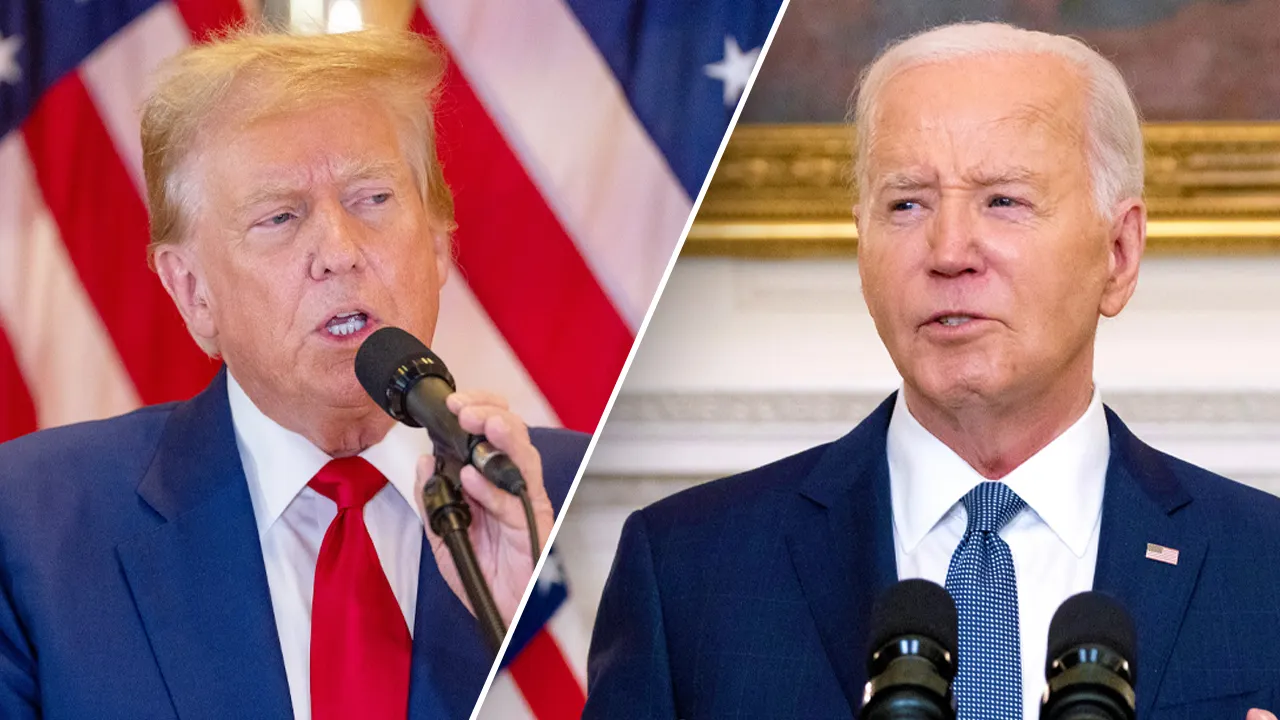Crypto
‘It’s not even good for money laundering’: ‘Black Swan’ author Nassim Taleb lashes out at Bitcoin and says it’s ‘transformed into a cult’

Bitcoin is an ineffective cult that not even “bad guys” want to join anymore, said the author of The Black Swan, a bestselling book on the extreme impact of outlier events. Cryptocurrency falls short on its claim to streamline payments, and doesn’t even facilitate illegal transactions well, Nassim Taleb told Bloomberg on Thursday.
“It’s not even good for money laundering,” he said. “It is too traceable. Gold you can re-melt [into] bars, you can do something, but Bitcoin has a book entry somewhere that anyone with basic knowledge of statistics can triangularize.”
The essayist assailed broader crypto culture, too, describing it as fanatical and dysfunctional.
“It has transformed into a cult. The first time in history probably, we’re mixing money and cults,” Taleb told Bloomberg. “Usually you do cults with yoga…cults with music, but here is a cult with a financial product. These things don’t go together well, because finance has some gravity rules that eventually end up hurting that model.”
He added that crypto is a fad that falsely claims to be a refuge from regulation. Despite advertising itself as a haven from government oversight, Bitcoin is “not even attracting the bad guys anymore,” according to Taleb.
Taleb, a former options trader and risk analyst, has switched his stance on crypto over recent years. In 2019, he was an advocate for the currency’s antiestablishment ethos. He disapproved of the Lebanese government’s capital controls on banks, and lauded Bitcoin for existing outside central banking.
“The most potent case for cryptocurrencies: Banks are never there when you need them,” Taleb tweeted in 2019. “And they are trying to bully the public so they avoid accountability and profit disbursements. Bankers are legal crooks.”
Bitcoin currently trades at around $26,400, down about 12% from this time last year, and down 62% from its peak of over $68,000 in November 2021.
Taleb previously invested in Bitcoin, but in 2021 he began selling his crypto because he found the currency too volatile. He also tweeted that the Bitcoin community had been taken over by “COVID-denying sociopaths with the sophistication of amoebas.”
Ever since, the author has been vocal about his distaste for crypto and predicted its failure. On Tuesday, he compared Bitcoin to the Mafia, but said the Mafia was truer to its promise of protection than cryptocurrency.
Taleb also told Bloomberg that the Federal Reserve could pull the plug on crypto at any moment, and would replace Bitcoin next month. He said this in reference to FedNow, an instant payment service the Fed plans to introduce in July. FedNow will let individuals and businesses transfer money in real time and have access to the funds within seconds, according to a video by the Fed. The service, which does not necessarily replace crypto, will be released in phases starting next month.
Taleb’s comments on Bloomberg came on the same day that the founders of Binance and Coinbase, the two largest crypto trading platforms, lost close to a combined $2 billion after being hit with SEC lawsuits. Coinbase CEO Brian Armstrong lost $361 million, and Binance CEO Changpeng Zhao lost $1.4 billion.
Securities and Exchange Commission Chair Gary Gensler is suing Binance for alleged “wash trading,” when a company trades with itself to inflate volume. Meanwhile, he’s suing Coinbase for allegedly selling unregistered tokens and acting as a broker, exchange, and clearinghouse without permission.
Taleb took aim at Coinbase on Thursday, replying to a tweet by the trading platform claiming it is easier to deliver a bag of money by plane than by wire transfer, and that crypto is a faster solution. Taleb responded by writing that the statement was a lie “meant to fool those who don’t do wire transfers.”

Crypto
The SEC ruling on Ethereum ETFs could mark a historic shift in crypto investing

VanEck CEO Jan van Eck sees a major sentiment shift underway in the cryptocurrency market linked to the U.S. Securities and Exchange Commission’s approval of a rule change allowing for Ethereum exchange-traded funds.
“This is really one of the most amazing things that I’ve seen in my career with respect to securities regulation,” van Eck told CNBC’s “ETF Edge” this week.
VanEck was the first to apply to the SEC for permission to list its proposed Ethereum ETF. With that first hurdle cleared, VanEck can begin the process of bringing the product to market, though the exact timeline is unclear.
“There was a real risk that the SEC was going to lose any kind of jurisdiction over digital assets. So the first reaction was to get the ETF, Ethereum ETF approval green lighted,” he said. “But I think there’s a bigger narrative going on as well.”
To van Eck, the buzz around Ethereum this May means clearer regulation on the horizon and an increased investor interest in crypto. In a statement on its website, his company said that “the evidence clearly shows that ETH is a decentralized commodity, not a security.”
Van Eck said the Financial Innovation and Technology for the 21st Century Act, or FIT21, passing in the House on May 8 was another major step toward regulatory clarity for cryptocurrencies, even though he is doubtful it will make it to the Senate before the election.
Ether spiked on the SEC’s approval of applications to list Ethereum ETFs on May 23, but is virtually flat since then.
Disclaimer
Crypto
Fueled By Craze For Nvidia, South Korean Crypto Traders Embrace Risky AI-Linked Tokens By Benzinga

Benzinga – South Korean traders are showing a growing interest in digital assets linked to artificial intelligence (AI.) This surge in interest has seen the country’s share of global trading volumes for Nvidia Corp.’s AI-linked tokens rise to 18.7% in May from a mere 0.6% in mid-2023.
What Happened: The AI tokens are typically issued by early-stage projects that aim to use blockchain technology for AI services, reported Bloomberg on Friday.
Despite the unproven utility of this combination, South Koreans are showing a strong affinity for both AI and crypto.
Approximately 10% of the South Korean population is exposed to tokens, with the majority of local trading being in volatile smaller coins, rather than the more established Bitcoin (CRYPTO: BTC) and Ethereum (CRYPTO: ETH).
Notably, Nvidia and Microsoft Corp. are the second and third most popular overseas stocks among domestic investors in South Korea this year, according to Korea Securities Depository figures.
Nvidia’s chips are integral to AI computer processing, while Microsoft is a key supporter of OpenAI and its ChatGPT tool.
See Also: ‘Dogecoin Killer’ Shiba Inu’s Burn Rate Spikes Nearly 250% As Whales Show Interest In The Memecoin
The weekly trading volumes for AI tokens have averaged $8 billion since February, a significant increase from the all-time low of $300 million in mid-2023.
However, there are concerns about the sustainability of the interest in AI-linked crypto projects, given the digital-asset sector’s history of booms and busts in coins tied to popular memes or social trends.
Why It Matters: South Korea has been a significant player in the global crypto market for some time now. As of September 2023, South Korean citizens had declared over $98 billion in foreign digital assets, leading to the country being dubbed a “crypto nation.”
The growing interest in AI-linked crypto projects is not surprising, given South Korea’s strong tech industry and the country’s ongoing fascination with cryptocurrencies.
This trend also reflects the global enthusiasm for AI and its potential applications in various sectors, driving investors to explore AI-related opportunities in the crypto space.
Meanwhile, top AI-based cryptocurrency tokens tumbled last week after AI chip giant Nvidia Corp. reported higher-than-expected earnings for the first quarter. Render, the token made gains ahead of the earnings announcement, was trading 3.79% lower. Render is know for the “most significant” ties with the tech giant
Read Next: ‘Dogecoin Killer’ Shiba Inu Spikes 5%: Trader Sees ‘SHIB Season’ And This Data Point Could Mean He’s Right
Disclaimer: This content was partially produced with the help of Benzinga Neuro and was reviewed and published by Benzinga editors.
Photo courtesy: Shutterstock
© 2024 Benzinga.com. Benzinga does not provide investment advice. All rights reserved.
Read the original article on Benzinga
Crypto
48 billion yen in bitcoin cryptocurrency disappears from Japan exchange

DMM Bitcoin Co., the operator of a Japanese cryptocurrency exchange, said Friday that digital assets worth at least 48.2 billion yen ($300 million) have disappeared for an unknown reason.
The Tokyo-based company under major IT firm DMM.com LLC said it detected the abnormality at around 1:26 p.m. the same day and suspended operations such as withdrawals of virtual currencies and the reviewing of applications for new accounts.
The amount of lost cryptocurrency is believed to be the second-largest ever in Japan, exceeded only by the 58 billion yen stolen from the Coincheck exchange in Tokyo in a similar incident in 2018.
Tokyo police will probe Friday’s case as they received an inquiry from DMM Bitcoin, according to an investigative source.
The company said it deals in around 40 kinds of cryptocurrencies. Its report for the business year to March 2023 said the number of accounts stood at some 377,000.
Related coverage:
Shiba Inu dog that inspired “doge” meme, cryptocurrency Dogecoin dies
-

 News1 week ago
News1 week agoRead the I.C.J. Ruling on Israel’s Rafah Offensive
-

 News1 week ago
News1 week agoVideo: Protesters Take Over U.C.L.A. Building
-

 World1 week ago
World1 week ago€440k frozen in Italy over suspect scam by fake farmers
-

 World1 week ago
World1 week agoHoping to pave pathway to peace, Norway to recognise Palestinian statehood
-

 Science1 week ago
Science1 week agoSecond human case of bird flu detected in Michigan dairy worker
-

 News1 week ago
News1 week agoLegendary U.S. World War II submarine located 3,000 feet underwater off the Philippines
-

 Politics1 week ago
Politics1 week agoAOC demands Senate Democrats investigate reports of Jan. 6 flags flown at Supreme Court Justice Alito's home
-

 Politics1 week ago
Politics1 week agoNYC Mayor Eric Adams announces Urban Rat Summit to combat rodent crisis: 'I hate rats'









/cdn.vox-cdn.com/uploads/chorus_asset/file/25474031/Crafting_Table_lego.png)









